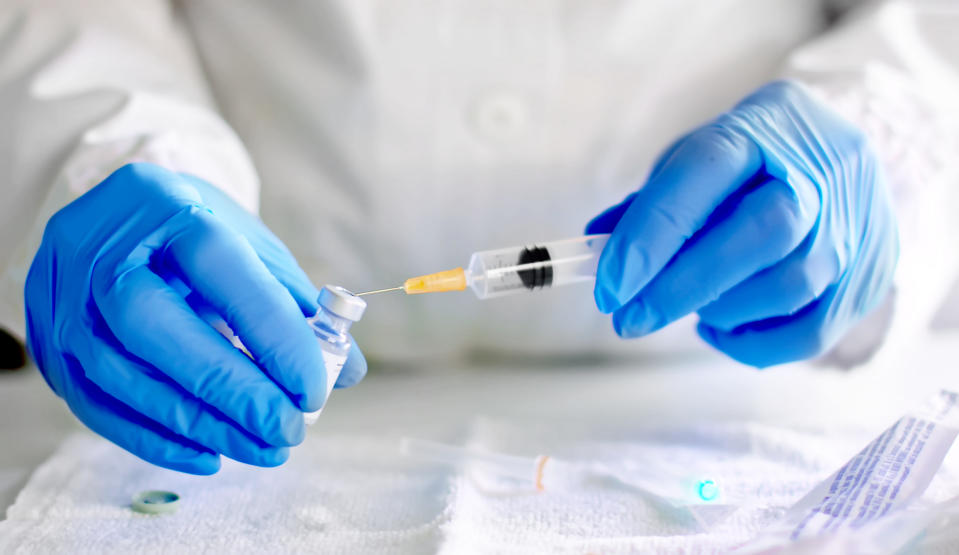There may never be a COVID-19 vaccine, warns WHO coronavirus expert
An effective vaccine to protect against coronavirus may never be developed, a special envoy to the World Health Organisation (WHO) on COVID-19 has said.
An effective vaccine is regarded as crucial to stopping the spread of the virus – but it is unknown how long it could take to produce one. Human trials of a vaccine developed by Oxford University began last month, with scientists aiming to have a million doses ready by September if tests go well.
US health experts have repeatedly said a vaccine is probably a year to 18 months away, though the White House said late last month that a vaccine could conceivably be in wide distribution as early as January.
"There are some viruses that we still do not have vaccines against," said Dr David Nabarro, a professor of global health at Imperial College London, who is also serving as a special envoy to the WHO during the coronavirus pandemic.

Latest coronavirus news, updates and advice
Live: Follow all the latest updates from the UK and around the world
Fact-checker: The number of COVID-19 cases in your local area
6 charts and maps that explain how coronavirus is spreading
"We can't make an absolute assumption that a vaccine will appear at all, or if it does appear, whether it will pass all the tests of efficacy and safety.
"It's absolutely essential that all societies everywhere get themselves into a position where they are able to defend against the coronavirus as a constant threat, and to be able to go about social life and economic activity with the virus in our midst.”
Dr Nabarro spoke to CNN after Donald Trump appeared to claim on Sunday that America would have an effective vaccine by the end of 2020.

In a virtual town hall with Fox News at the Lincoln Memorial in Washington on Sunday, Trump said: “We are very confident we are going to have a vaccine by the end of the year.”
Scientists have previously warned that a vaccine may take 12-18 months, or longer.
The comments came as Boris Johnson prepared to describe the race to develop a coronavirus vaccine as the “most urgent shared endeavour of our lifetimes” and call on nations to “pull together” in response to the pandemic.
Johnson is expected to tell an online pledging conference on Monday – co-hosted by the UK and eight other countries and organisations – that the sooner states share their expertise, the faster scientists will succeed in defeating the disease.
Nabarro’s concerns echo those of Sir Patrick Vallance, the government’s chief scientific adviser, who said he was hopeful a vaccine will be developed but warned it would not be available any time soon.
“All new vaccines that come into development are long shots; only some end up being successful, and the whole process requires experimentation,” he wrote in The Guardian.
“Coronavirus will be no different and presents new challenges for vaccine development. This will take time, and we should be clear it is not a certainty.”
The prime minister will set out his government’s strategy to ease the country out of lockdown in a public address on Sunday.
New measures could include advising people to wear face coverings in public, allowing people a “social bubble” of no more than 10 people until 2021, and bringing in one-way routes through train stations to avoid a second peak of the virus.


